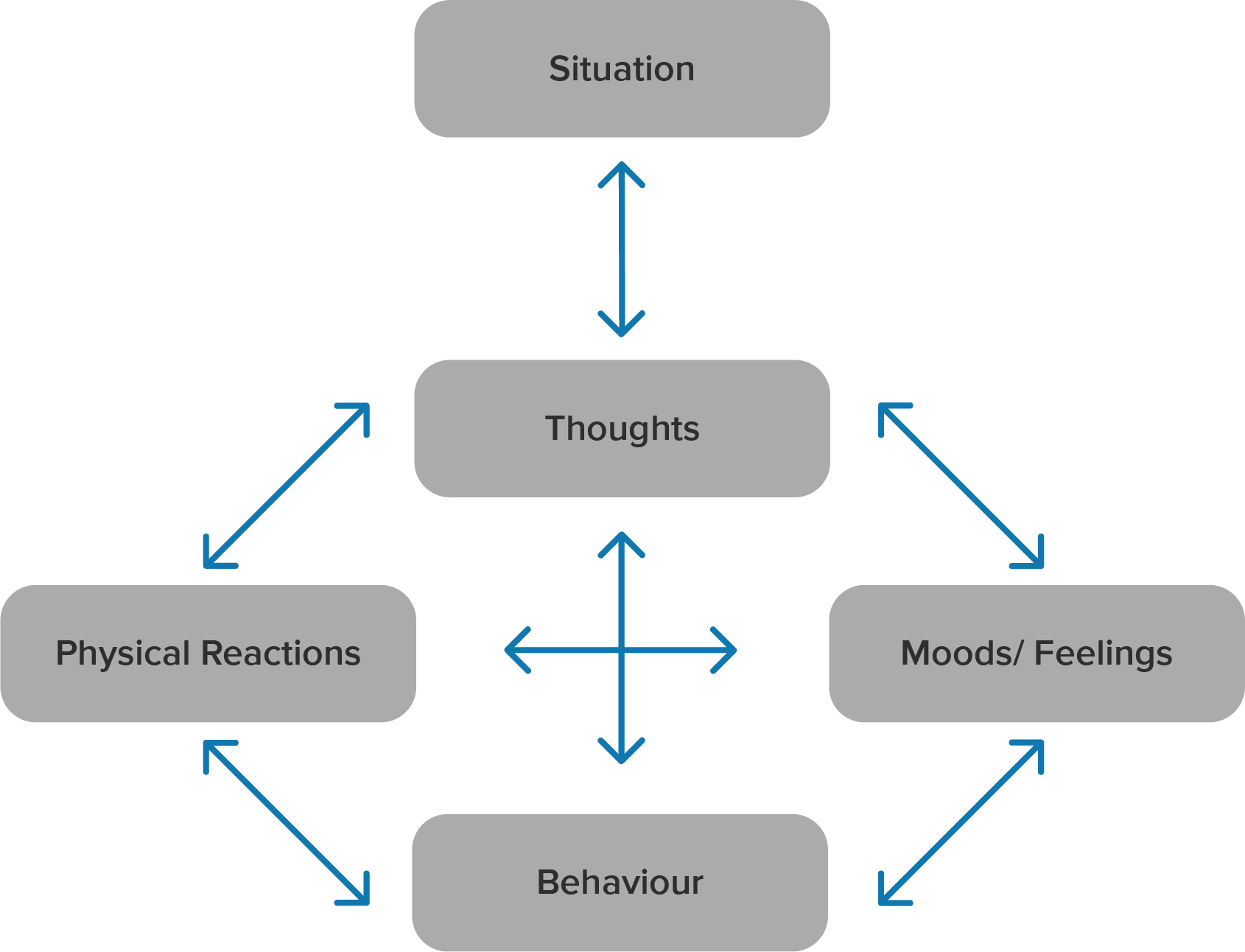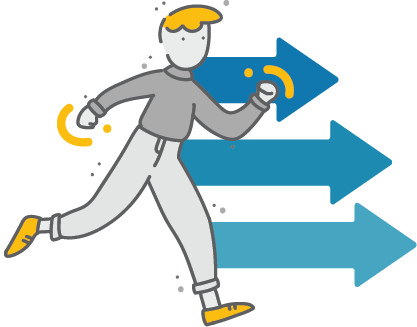Becoming a Self-Manager
Challenging Your Thoughts
Updated Jul 31, 2019
Swipe right to go to the next slide

Thoughts and beliefs about health come from many places, like family, culture, doctors, and the media (TV, internet, books). Health beliefs and thoughts can also come from inside of us, when our minds try to make sense of things that are happening in a given situation. Our thoughts and beliefs about symptoms can have a major impact on how we feel (emotions) and what we do (behaviours).
Cognitive Behavioural Therapy (CBT) provides a way of understanding the connections between our thoughts, feelings, physical sensations, and behaviours. CBT skills involve changing unhelpful thoughts and behaviours that may be causing or worsening personal problems. These skills are helpful for coping with mental and physical health conditions, including concussion.
Click on this short (3:35 min) video to learn more about CBT. Although this video focuses on CBT for mental disorders, CBT skills are helpful in physical conditions like chronic pain, headaches, insomnia, and concussions. How we think about and respond to physical symptoms can affect how we experience them, and contribute to disability and recovery in powerful ways.
Thoughts often feel like facts, but we don’t have to take them at face value. There are several types of unhelpful thoughts. In CBT, they are called cognitive distortions, thinking traps, or Unhelpful Thinking Styles. They usually happen automatically, and can lead to unpleasant emotions and unhelpful behaviours.
Click on the image to enter full screen mode. Then, click on each thought bubble to see what kind of Unhelpful Thinking Style it is.
Don’t accept your unhelpful thoughts as facts. You can use Cognitive Reframing to deal with unhelpful thoughts.
Click on the image to the right enter full screen mode and see a description of the six steps of Cognitive Reframing. For each step, click to reveal an example of that step for one of the unhelpful thoughts from the previous slide ("Nothing good ever happens to me").
What does all of this have to do with concussion? Well, some thoughts and beliefs about concussion can make it difficult to progress with your return to activities.
Click on the image to the right to enter full screen mode and see a list of common unhelpful thoughts about concussions . Have you had any of them? Think about the possible consequences if these thoughts go unchecked and become beliefs. Can you identify the unhelpful thinking style in each example?
If you would like to practice using the CBT skill of Cognitive Reframing, consider choosing one of the common concussion beliefs from the prior slide and going through the six steps of cognitive reframing on slide four of this article. You will practice looking for evidence for and against, and coming up with a reframed thought.

Click the button above to toggle between light mode and dark mode. This toggle can also be found in the menu.
Hold
and tap
to zoom in.
Hold
and tap
to zoom out.
Hold
and tap
to zoom in.
Hold
and tap
to zoom out.
On most mobile devices, you can spread to zoom.
Increase your text size in your device settings.
Remember to take regular breaks while exploring MyGuide: Concussion.
Vancouver Coastal Health’s MyGuide Concussion Team would love to hear your feedback! It matters to us and helps to improve the experience for future users. Your responses will be kept anonymous and your privacy is a top priority. To complete a 15-20 minute online survey or request a telephone survey, please click the link below.